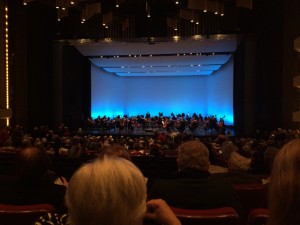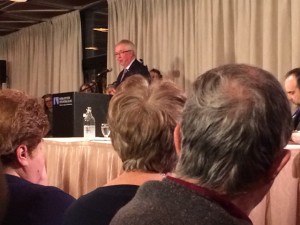Monday, and old habits are starting to rear their heads — neither Trudeau nor Mulcair were present, Trudeau in meetings, and Mulcair in La Loche, Saskatchewan. Rona Ambrose led off, mini-lectern on desk, and read a question about jobs in the resource sector, demanding support for their opposition day motion on Energy East. Jim Carr noted that they needed to establish a credible process if they wanted to get resources to market. Ambrose decried Trudeau killing off Northern Gateway with the tanker ban on the west coast, to which Carr reminded her of the lack of trust in the regulatory process under the previous government. Ambrose tried again to get support for the motion, but got another reply about the environmental assessment process. Maxime Bernier was up next, decrying deficits, to which Bill Morneau reminded him that the debt-to-GDP ratio was still going down. Bernier cried that only businessmen create investment, not governments, and then demanded confirmation that the Conservatives left a budget surplus. Morneau insisted that the fiscal update released at the end of last year showing a deficit was accurate. Leading off for the NDP was Marjolaine Boutin-Sweet, who raised one of the interviews from last night’s CBC special, and demanded help for the manufacturing sector. Navdeep Bains rose up, and said that an innovation agenda for the sector was on the way. Boutin-Sweet demanded a plan yesterday, to which Bains insisted that they have it. Irene Mathyssen took over to read the same again in English, and got the same answer.
Reading the same question four times in a row! #accountability #QP
— Dale Smith (@journo_dale) February 1, 2016


